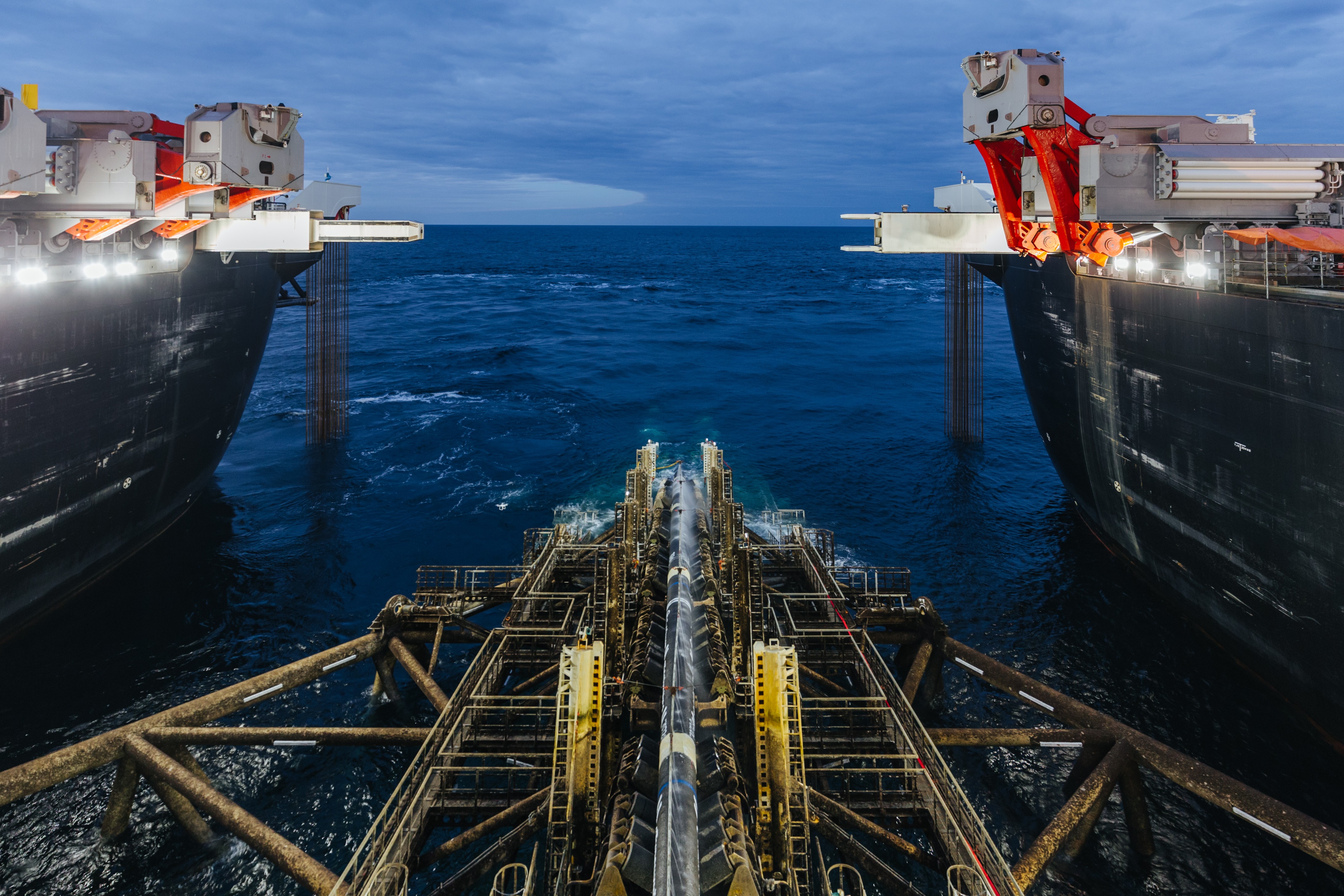The profit from the operation of the Turkish Stream gas pipeline in 2021 is BGN 83.57 million EUR 42.7 million).
The revenues from the pipeline’s activity in 2021 reach BGN 212.8 million, with total conditionally distributed operational and financial costs for the period amounting to BGN 129.23 million.
Bulgartransgaz has built and operates the TurkStream extension, which is part of the Balkan European gas distribution hub concept. The revenues that the company realizes from the projects for the expansion of the country’s gas transmission network are the result of both the concluded binding contracts for the reservation of capacity for a period of 20 years from the Open Season procedure conducted in accordance with the pan-European legal framework and from the offered free capacity of the intersystem points, the Ministry of Energy explains.
We remind you that “Turkish Stream” connects Russia with the European coast of Turkey along the bottom of the Black Sea. It consists of two pipes each with a capacity of 15.75 billion cubic meters. The first pipe directly supplies “blue fuel” to Turkey, and the second is intended for the countries of Europe and the Western Balkans. In Europe, it enters Bulgarian territory, from where the gas route goes to Serbia and Hungary. The Bulgarian part of the gas pipeline is also known as “Balkan Stream”.
Since the end of April, Bulgaria no longer imports gas from Russia due to the complex situation related to the Kremlin’s war against Ukraine. However, the transit of Russian gas through our country via “Turkish/Balkan Stream” has not stopped. In the period from June 21 to 28, Turkish Stream was undergoing planned annual maintenance.
After the suspension of Russian natural gas supplies, the already resigned government of Kiril Petkov managed to contract two tankers of liquefied natural gas from the United States. Information from the authorities is rather scarce and contradictory. So, for example, in just one day, Petkov and Lena Borislavova differed on the price from approximately close to that of “Gazprom” to 3 to 4 times cheaper than Russian gas. For the moment, it is known that at least one of the tankers has already been unloaded in Turkey.
In order to ensure a stable supply of natural gas, which is so necessary for Bulgarian business, Sofia must have at least two stable long-term contracts with a country or supplier other than Russia, in order to ensure the much-needed diversification. This was stated recently by the current chairman of Energy and Water Regulatory Commission, Stanislav Todorov.
At the moment, Bulgaria has almost no active long-term contract for natural gas, with the exception of the contract with Azerbaijan, which cannot be fully realized due to the lack of a functioning interconnection with Greece. The promises of the government in Petkov’s resignation is that the interconnector will be operational already at the beginning of this month, tentatively pointing to the date of July 1.

